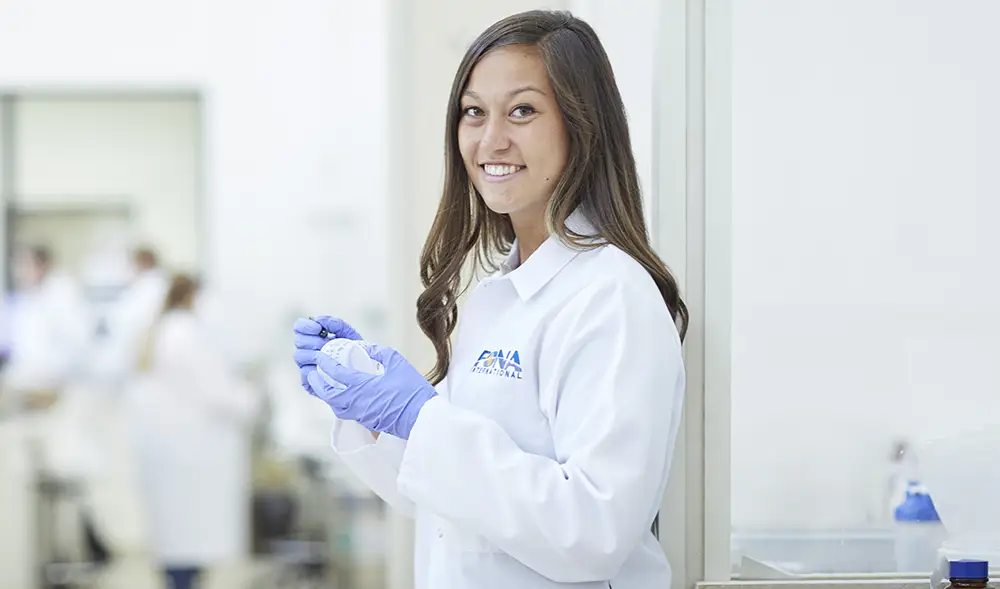So You Want to Use that Chemistry Degree...
March 14, 2018
Hi, My name is Hannah. Like Katie, my job (food scientist) combines two of my loves: food and science.

I studied chemistry in college, and I remember wondering what was out there to do with a chemistry degree. I wasn't interested in medicine, I didn't want to go into engineering and I didn't want to run tests on an instrument all day. While none of these are poor career options, I wasn't passionate about any of them. At the same time, I couldn't conceptualize a career in chemistry beyond these common options.
It wasn't until I found FONA that I began to see that chemistry is involved so much more — from the food we eat, to the materials that package it. From the soap we use to wash our hands, to the paper towel we use to dry them. From the formula of the sports drink we consume, to the breathable fabric we wear when we work out, to the mascara that doesn't run when we do. Chemistry is harnessed by people in all different industries to develop the products that we use every day without thinking about it. Even the glass of water sitting next to you is a pile of chemicals (H2O) contained in a crystalline structure of other chemicals (mostly silicon dioxide and a spattering of other chemicals like sodium carbonate and calcium oxide). Someone had to purify that water and someone else had to come up with a process to create and form that glass. Are you starting to see that chemistry is involved in EVERYTHING in our lives? Not just the experiments in the classroom.
If you're like me when I was in college: interested in science but not sure where to turn with that interest — don't worry. There are so many different industries that need chemists to support their product development, product quality and safety, and product analysis. I was able to use my love of science to create something else I love: food. What will you use your love of science to do?
You can learn more about Food Science at the Institute of Food Technologists (here) . Find out about the other career paths involved in a flavor company here.

I studied chemistry in college, and I remember wondering what was out there to do with a chemistry degree. I wasn't interested in medicine, I didn't want to go into engineering and I didn't want to run tests on an instrument all day. While none of these are poor career options, I wasn't passionate about any of them. At the same time, I couldn't conceptualize a career in chemistry beyond these common options.
It wasn't until I found FONA that I began to see that chemistry is involved so much more — from the food we eat, to the materials that package it. From the soap we use to wash our hands, to the paper towel we use to dry them. From the formula of the sports drink we consume, to the breathable fabric we wear when we work out, to the mascara that doesn't run when we do. Chemistry is harnessed by people in all different industries to develop the products that we use every day without thinking about it. Even the glass of water sitting next to you is a pile of chemicals (H2O) contained in a crystalline structure of other chemicals (mostly silicon dioxide and a spattering of other chemicals like sodium carbonate and calcium oxide). Someone had to purify that water and someone else had to come up with a process to create and form that glass. Are you starting to see that chemistry is involved in EVERYTHING in our lives? Not just the experiments in the classroom.
If you're like me when I was in college: interested in science but not sure where to turn with that interest — don't worry. There are so many different industries that need chemists to support their product development, product quality and safety, and product analysis. I was able to use my love of science to create something else I love: food. What will you use your love of science to do?
You can learn more about Food Science at the Institute of Food Technologists (here) . Find out about the other career paths involved in a flavor company here.



